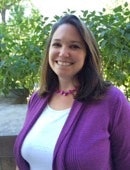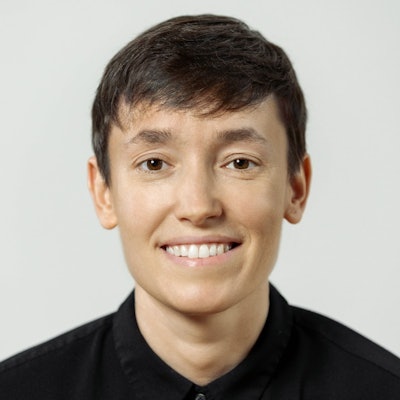As the dust settles from the Supreme Court ruling in Dobbs v. Jackson Women’s Health, experts are growing increasingly concerned with the negative impact the decision that overturned Roe v. Wade may have on the mental health and well-being of college students, particularly those from marginalized communities including first generation students, LGBTQ+ students, and students with fewer resources.
 Dr. Sharon Custer, director of the family science and social work field education, partnership specialist, and community justice and wellbeing liaison at Miami University in Oxford, Ohio.
Dr. Sharon Custer, director of the family science and social work field education, partnership specialist, and community justice and wellbeing liaison at Miami University in Oxford, Ohio.
Denying abortion to those seeking care has been shown to not only increase an individual’s anxiety, it also decreases their satisfaction in life and self-esteem.
“Ninety-five percent of people do not regret the choice to terminate their pregnancies,” said Dr. Laura Erickson-Schroth, chief medical officer of The Jed Foundation (JED), a nonprofit organization working to improve mental health and prevent suicides among young people. “In addition to affecting individuals negatively, the larger political change of banning abortions sends a message to people that they don’t have autonomy over their own bodies anymore.”
Erickson-Schroth added that the Dobbs decision will place extra barriers and burdens onto those already negatively impacted by discrimination.
“Trans men and nonbinary folks living in states with abortion bans will be placed in a difficult situation,” said Erickson-Schroth. “They will now face a new myriad of physical, social and economic challenges, including the possibility of traveling long distances for an abortion. If traveling to other states for abortions, trans folks will have to seek out providers in new areas where they may not know how supportive the providers will be of their identities.”
Custer added that the ruling will affect women of color and first generation, lower-income students, those with no access to strong support networks or financial resources. “I don’t think colleges are prepared for this," said Custer.
Many K-12 education programs offer little in sexual health education apart from abstinence-only and Sexually Transmitted Infection (STI) information. Custer said parents and students alike may be surprised to learn the amount of sexual activity of students on campuses and that 25% of women students report they experienced a sexual assault or rape during college.
“I’ve talked with college students who aren’t sexually active and are thinking about getting birth control just in case they are raped,” said Custer. “That’s not what the average college student worries about.”
 Dr. Laura Erickson-Schroth, chief medical officer of The JED Foundation.
Dr. Laura Erickson-Schroth, chief medical officer of The JED Foundation.
The Supreme Court’s decision sparked outrage across the country and on college campuses. A group of students came to The Pennsylvania State University’s main gates at 7 p.m. the day of the ruling, ready to protest, according to Dr. Alicia C. Decker, associate professor and department head of women’s, gender, and sexuality studies at Penn State.
“[This decision] will lead to students with the ability to get pregnant to drop out of school and to other crises because of additional complications,” said Decker. “These restrictive laws have greater effect on those already experiencing the brunt of oppression, the incarcerated, LGBTQ+, those with different immigration statuses, those in rural areas, those in poverty. As a land-grant in middle of Pennsylvania, we have all of those in our student population.”
Decker said her department as well as other cultural centers and ethnic studies programs “concerned with the intersectional axis of oppression” will continue to share all the resources available with their students, but she is keeping an eye on the Pennsylvania government.
“The elections are going to determine a lot of things,” said Decker. “The race for midterms and governor is really crucial. If abortion is outlawed here in the next number of months, we may find ourselves not being able as to talk as freely as we used to talk.”
Custer is also watching her state’s legislation. Ohio has already outlawed abortion past six weeks, a time when many individuals may not even know they are pregnant. But House Bill 480, currently in committee in the Ohio House of Representatives, could outlaw abortion altogether.
The stress and worry for her students and clients is impacting her and her fellow faculty, she said.
“The worries of what can I say, do, teach, how can I help, what’s appropriate and not,” said Custer. “Self-determination in general is one of [social work's] core values. If abortion is illegal and that’s what [the client] wants to do, do I have an obligation to help someone access a legal abortion?”
To meet the moment, Custer advised that institutions work closely and intentionally with their students, faculty, parents, and community to prepare for their incoming fall students, taking every opportunity available to provide students with resources well in advance of their potential need.
“Take a multi-pronged approach to getting them the information. It’s critical in a place like Ohio, if you only have six weeks, you have to get that information to them before they need it,” said Custer. “Whether that’s Instagram, or a flyer in a bathroom, programming on campus, guest speakers, Greek houses and athletics departments — look across campuses and figure out what and how are the ways to reach diverse students.”
Liann Herder can be reached at [email protected].
















